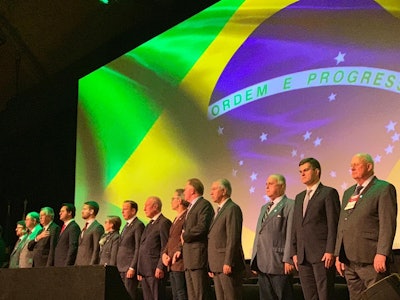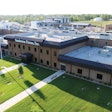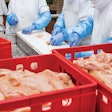
On August 27, the International Poultry and Swine Exhibition (SIAVS 2019) was opened in São Paulo, Brazil, the largest ever organized by the Brazilian Association of Animal Protein (ABPA).
Francisco Turra, president of the ABPA, opened saying: “A new Brazil, our dream,” implying that, after the difficulties of the furor caused two years ago by the Operation Weak Flesh scandal, things are changing.
In the same position, Marcos Prado Troyjo, special secretary of Foreign Trade and International Affairs of the Ministry of Economy, presented the idea of making a reflection about the Brazil that Brazilians want: a prosperous and rich country, advanced, with social justice, a favorable system for developing business and an atmosphere for people to build their dreams.
He said that Brazil belongs to a community and that external events can become opportunities to survive. “Our things depend on the external scenario, and we have to see what the possibilities are,” he said.
One of the external circumstances is the risk of deglobalization, mainly due to the trade war between China and the United States. In addition to this, is the problem of pork losses due to African swine fever, and China must eat.
Brazil must be inserted in the economic opening. That is why the agreement with the European Union is crucial, in addition to negotiations with Singapore, Canada or Mexico.
50 years of poultry integration
With a victorious tone, Turra said these five decades of development, integration and poultry production are an example of the country's thriving agriculture, synonymous with economic development. Brazil is already a world leader in the poultry sector, with peculiar characteristics such as being the largest exporter of halal chicken in the world. But now there are greater perspectives.
“Our endurance ability was tested to the limit,” Turra said, referring to these last two years. The challenges were very hard, but he praised the fact that Brazil is still free of avian diseases, a unique situation in the world with this status, in addition to retaking lost markets.
The excellence of the production capacity of Brazilian poultry and swine production is indisputable, but he recalled that “logistic improvement and fiscal simplification are essential.”
Disinformation at the order of the day
“Misinformation is the great battle of every day. It has not been enough to work with transparency and quality,” said Turra. Speaking of the ambiguities of the interpretation in Operation Weak Flesh, he said that “truth is one of the struggles and conquests.”
Today, after 70 countries closed imports, there are more countries importing poultry products than ever before.
“Transparency is not enough. We have to show the world who we are.” Thus, Turra explained 35 international journalists were invited to the SIAVS event so they could see how Brazil is reaffirming its role in food security.
Fires in the Amazon
To go into detail into the information war, several governors of Brazilian states took the floor and spoke with paroxysm about an issue that concerns them and everyone: the fires in the Amazon rain forest.
It should be noted that in the Brazilian Amazon there is no poultry or swine production, nor are soybeans or corn grown. However, the media impact of uncontrolled fires, which the rest of the world is talking about, can have side effects that can impact business, including the poultry industry.
Peace of mind and guarantee in exports
Finally, Brazil's Agriculture Minister, Tereza Cristina Corrêa da Costa Dias, spoke about the need to invest more in technological innovation, to guarantee the quality of food, both for the internal and external markets.
She said the role of the Ministry of Agriculture, Livestock and Supply is to give “peace of mind for exports and guarantee importers of the Brazilian health service.”
She also added that Brazil is a great power of food production and the environment and that the country is increasingly being more efficient in production.

















